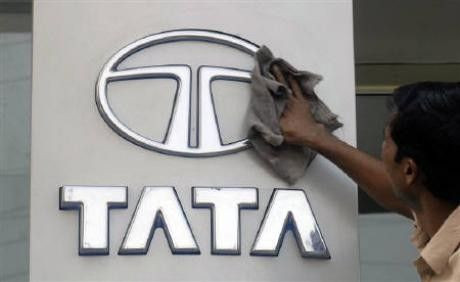Power Firms Top Executives to Meet PM Over Power Issues

Top executives from India's major power companies will meet Prime Minister Manmohan Singh on Wednesday to push for swifter action to improve access to coal and make it easier to get funding, acquire land and get environmental clearances.
Lack of progress on such issues has held up projects and threatens India's economic growth.
Tata group Chairman Ratan Tata, his deputy Cyrus Mistry, Reliance Power Chairman Anil Ambani, Adani Power Chairman Gautam Adani and top executives from other private power firms will be part of the delegation, organised by the Association of Power Producers.
The executives will also meet ministers in charge of finance, coal, petroleum and environment on the same day.
The basic issues in the power sector are not being resolved and are impacting generation programmes. The companies will seek quick redressal, Ashok Khurana, director general at the Association of Power Producers, told Reuters.
Policy gridlock in India, which has resulted in little economic reforms in the past few years, has crimped investment and contributed to a slowing of the economy.
Late last year, Singh met top executives from the telecommunications sector to hear their concerns about regulatory issues.
A shortage of coal and gas and uncertainty over supply have thrown the business plans of the generators into disarray and made lenders reluctant to lend, delaying projects.
Tata Power and Reliance Power, developers of 4-gigawatt plus power plants, are lobbying the government to free them from loss-making power sales contracts and want to be allowed to pass on rising fuel costs to consumers.
Plants that can produce about 20,000 megawatts thermal power are working at sub-optimal capacity, and another 30,000 MW of plants under construction are likely to be affected by fuel shortages, Khurana said.
India has an installed capacity of 187,000 MW, about a fifth of China's capacity, and a peak-hour deficit of about 12 percent.
A shortage of coal could prevent India from reaching its target of raising capacity by 75,000 MW in the five years to March 2017, a government draft report said late last year.
In its 12th five-year plan ending March 2012, India will add only 52,063 MW, falling short of the targeted 62,374 MW, continuing a trend of missing power output targets.
Coal accounts for more than half of India's power generation and will be required for about 85 percent of the target capacity addition in 2012-2017, the draft said.
India has about 10 percent of the world's coal reserves, but has struggled to provide enough of the fuel to power sector because of challenges in land acquisition and environmental clearances for mining.
A shortage of domestic supply is likely to push up coal imports by four times to 213 million tonnes in 2016/17 from 54 million tonnes this fiscal year, the draft said.
Costly imports, which may seem the only way to meet the country's coal demand, make power more expensive, forcing distribution firms, which sell at subsidised tariffs, to slow procurement.
© Copyright Thomson Reuters 2024. All rights reserved.





















